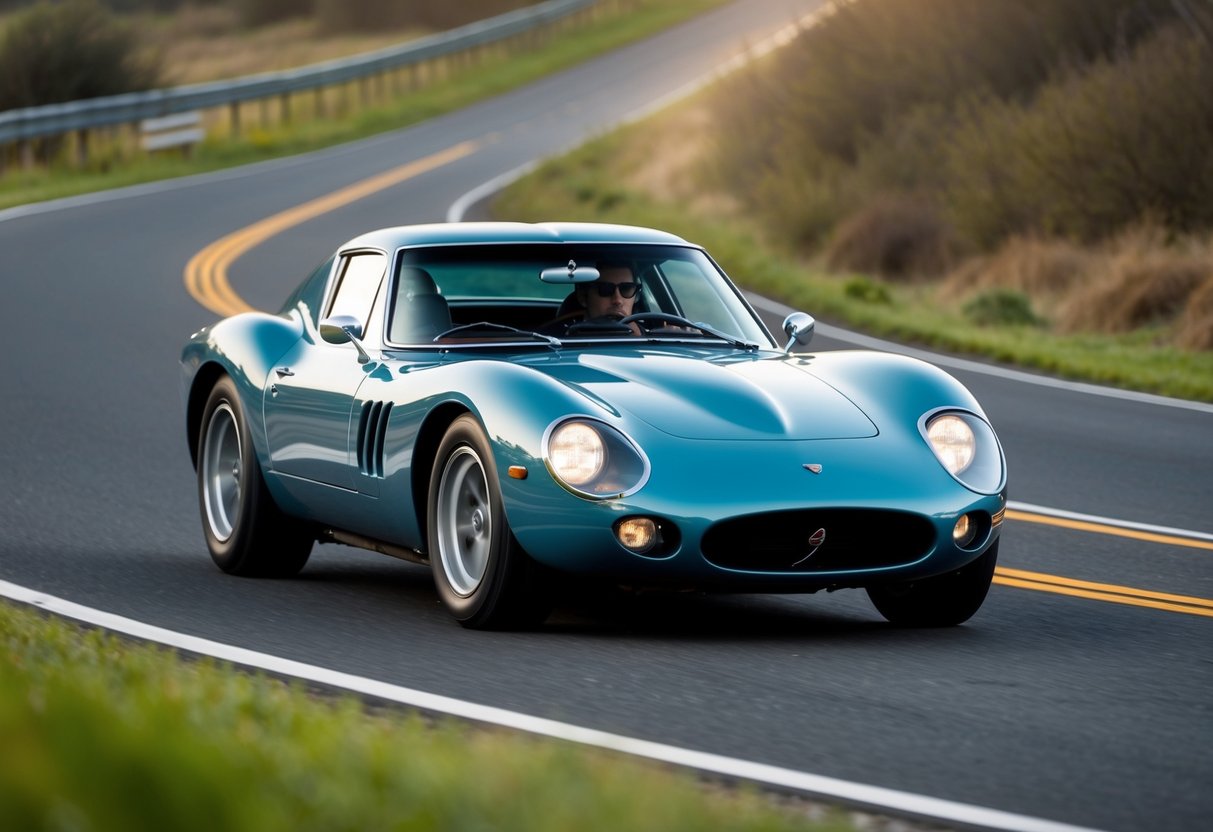
Reviving Legends: Notable Restorations
The revival of classic sports cars often centers on restoring iconic models with a blend of authenticity and modern innovation. This resurgence draws substantial interest from collectors and enthusiasts who cherish both the artistry of vintage design and the enhancement of contemporary performance.
Noteworthy Restoration Projects
Restoration projects breathe new life into beloved classics, offering them renewed glory while preserving their history. The Datsun 240Z exemplifies this trend. Known for its sleek design and affordability, it has seen numerous restoration efforts emphasizing its classic aesthetics paired with improved performance components.
The Plymouth Barracuda is another classic that has captured renovators’ imagination. This muscle car, celebrated for its power and aggressive stance, undergoes meticulous restorations that retain its vintage allure while integrating modern mechanical systems for reliability and enhanced driving dynamics. Such projects ensure these legends maintain their revered status in the world of retro sports cars.
The Toyota Celica also stands out in restoration circles. With its origins tracing back to the 1970s, efforts to restore these vehicles focus on combining their iconic styling with new technology, making them more suitable for present-day roads. These projects not only preserve automotive history but also enhance the driving experience.
Investment and Collector Interest
Interest in these restored classics extends beyond mere nostalgia; they represent valuable investments. Restored Datsun 240Zs and Plymouth Barracudas, for instance, frequently draw attention at auctions, with prices reflecting their desirability and rarity. Collectors often view these vehicles as tangible pieces of art, offering both historical significance and aesthetic pleasure.
Investments in these cars are incentivized by their increasing value over time. The Ford Bronco, once a rugged utility vehicle, now attracts collectors for its blend of heritage and capability. Likewise, the Toyota Celica’s enduring appeal offers potential for long-term appreciation. This ongoing interest ensures restored classics continue to captivate new generations of enthusiasts and investors alike.
Innovations in the Automotive Industry
The automotive industry is witnessing exciting transformations as it blends vintage aesthetics with modern advancements. Key areas of focus include sustainable practices and technology integration, which are reshaping the production and functionality of sports cars.
Sustainable Practices and Materials
Automakers are increasingly incorporating sustainable practices to address environmental concerns. This includes utilizing eco-friendly materials such as recycled plastics, natural fibers, and biodegradable composites for car interiors and exteriors. Manufacturers invest in developing vehicle components made from bio-based materials, reducing carbon footprints and reliance on traditional resources.
Electric drivetrains and hybrid systems are integral to this shift, with many sports cars offering electrification to lower emissions without sacrificing performance. These innovations align with global sustainability goals and reflect the automotive industry’s commitment to eco-conscious manufacturing. Such efforts ensure that vehicles of tomorrow are not only high-performing but also environmentally responsible.
The Role of Technology in Future Sports Cars
Modern technology plays a crucial role in the development and functionality of sports cars. Advanced driver-assistance systems (ADAS) enhance safety and provide features such as adaptive cruise control and lane-keeping assist, making driving more intuitive and secure. Connectivity solutions include smartphone integration and over-the-air updates, ensuring that vehicles remain updated and connected to the digital ecosystem.
High-performance engines and lightweight materials resulting from cutting-edge research offer better speed, agility, and efficiency. Meanwhile, virtual reality and augmented reality are revolutionizing design and testing processes, allowing engineers to prototype and perfect models rapidly. These technological advancements signify how innovative approaches are shaping the future landscape of sports cars, blending heritage with state-of-the-art performance.



